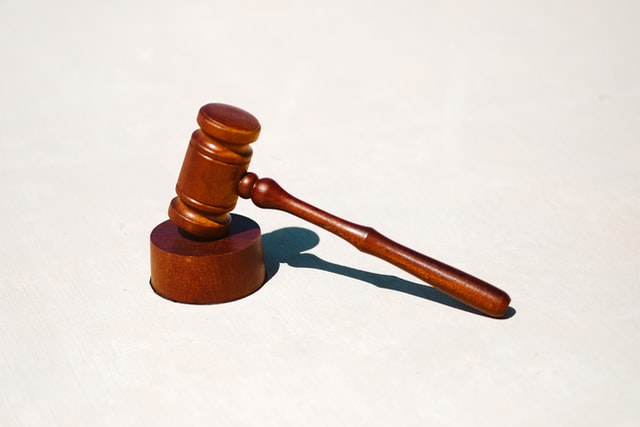
How to avoid a Google Penalty
Google ranks websites based on their popularity and relevance. From the search engine’s perspective, more popular sites are usually better than less-popular ones because they contain content that is relevant to a larger number of people in comparison.
Google assigns rankings for its respective webpages by taking into account how many times it has been linked to from other pages or blogs as well as what kind of words appear most often on those pages such as “best,” “top five” etc.
These factors are topics I concentrate on throughout many blog posts however google also has a series of negative ranking factors that will penalise your website, in the form of a manual penalty.
Are negative ranking factors are a good thing?
Google has been criticised for having a negative ranking factor. Many search engine optimisation experts noted that Google’s algorithm is constantly changing and this creates confusion among webmasters, who have to adapt their sites in order to avoid penalties like not appearing on the first page of results or receiving little traffic from organic sources as well as paying customers.
Google has received criticism after it was discovered they had implemented an update (known by many SEO experts simply as “Pigeon”) which penalised websites with content published solely in languages other than English – even if those pages were ranked high previously due to engagement levels across geographical locations such as Europe and Asia-Pacific regions. This change led some website owners feeling mislead into believing there would be no repercussions caused by ignoring it.
Negative ranking factors such as these are up for debate however this isn’t what I’m going to concentrate on today. I’d like to look at factors that we have more control over.
Firstly, What is a manual penalty?
A manual penalty is when Google finds a site to be problematic in some way and takes action by lowering the ranking of that particular page.
At Google, an employee manually assigns penalties to websites found violating their Terms of Service. It’s a way for the company to keep its users safe and secure when they’re online–and it means that we have more time in our day-to-day life!
Google penalizes people who break the rules on their website: but don’t worry because this happens only once in awhile. For example, if your site is hacked or you are hosting illegal content then you will be issued with penalty points which can range from 1 point all the way up to 30 points depending on how severe your violation was. The most common routine violations include using spam techniques like keyword stuffing and buying links; copyright infringement and linking unnecessarily offsite.
Backlinks that are considered SPAM
One of the best ways to make your website more popular is by acquiring high-quality inbound links. Google takes these into account when ranking a site, and it’s important that they are quality ones because this will show them how well regarded you are as an authority on any given topic. This has lead to there being a huge market for buying backlinks.
There’s no denying that buying links can be tempting for some companies who may feel like their rankings in the SERP (search engine result page) could use improvement and SEO is just taking so long to get there. In the latest version of Google’s algorithm, backlinking is seen as a form of cheating and if you do it enough your site will get penalized. Google has come out with harsher penalties against those using link building services as well as banning them outright from utilizing any form of paid promotion on the website altogether- which means potentially more loss revenue than saving money depending on what type of business one owns!
It’s a good idea to avoid spammy backlinks because they can be toxic and cause harm to your site.
Keyword Stuffing
Keyword stuffing is a terrible SEO tactic that has been around since the early days of Google. It’s an attempt to deceive search engine algorithms into thinking your site is more relevant for certain keywords than it actually might be. This technique backfired in 2005 when Google released its Penguin algorithm update, which penalizes websites with keyword-stuffed content and high amounts of anchor text from other sites pointing at them without context or relevance to their own stories.
It was really bad practice before those updates came out because many people were using these overused phrases excessively on large chunks if not all their pages just so they could rank higher on searches relating to said phrase(s). Therefore, our advice? Avoid keyword stuffing at all costs.
Duplicate content
With new website posts coming out every day, it can seem like a daunting task to stay on top of the search rankings. The best way for businesses is to post fresh and original content that will keep people interested in what you have going on at all times.
However, It’s important to avoid posting duplicate content when it comes to SEO. If you post the same article on multiple pages or sites, Google will penalize your site and rank lower than other websites who don’t have this problem with their own posts.
Your outbound links are precious
Here’s a quick way to make your website rank high on the search engines: don’t link to bad websites.
You may be aware that linking to gambling websites can hurt your search rankings, but did you know it’s bad for more than just SEO?
Linking to gambling websites is hazardous for your SEO. These sites have a high-risk factor because they’re risky in two ways: (1) you can lose money on the site; and, (2) if you do well playing games like slots or poker, it’s easy to make an impulse purchase of these items from their online store.
It may be tempting when linking out to gamble with the use of hyperlinks at first glance but always remember that just as bad are links which lead people back into addiction through banner ads placed prominently on other pages across multiple domains such as Facebook so tread carefully!
Hidden Content is a terrible tactic
Using black-hat tactics to hide content from your website’s users is not only unethical, but also detrimental for SEO. You should never resort to these shady practices when trying to improve the effectiveness of an online business.
People often think that hiding information about their company or products on a site will be beneficial because it means fewer people will know and won’t bother visiting their page in order see what they have available, which may turn out bad if you’re selling something more expensive than normal everyday goods such as clothes or DVDs (which are typically cheaper). But this actually does nothing but hurt them: Google has already acknowledged that including hidden links can lead its search engine crawlers into trouble by making pages look too similar and having difficulty navigating through them. Not recommended!
How to know if my website has a google penalty?
You’re now wondering if your website has a Google penalty. There are many factors that can lead to this, and it’s difficult for me to make an accurate assessment without more information about you or the site in question. Luckily there is help out there! Simply register with Google Search Console and you can find out.
To conclude
To rank highly in Google, you need to follow SEO guidelines. These are easy and quick steps that anyone can do so they get a chance at ranking higher than their competition. If you would prefer for me to do them, then get in touch or see more details about my SEO services.
